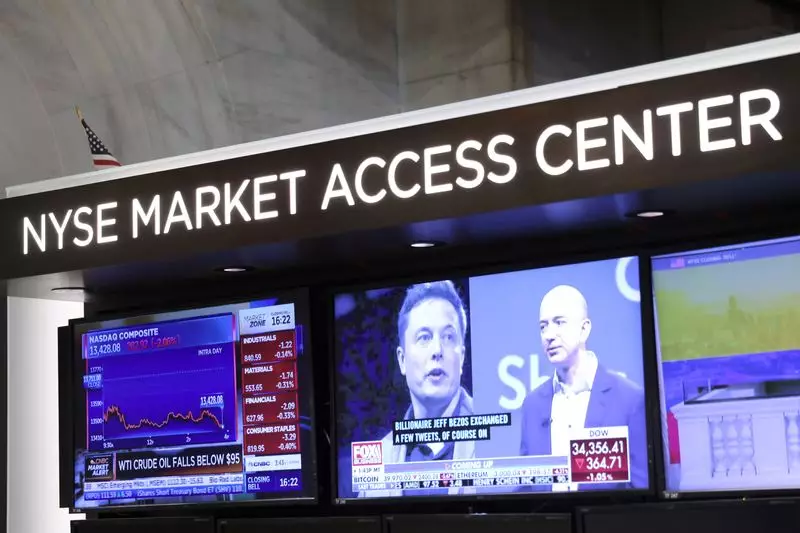As the space industry burgeons with opportunities and competition, the heavyweights of the sector, Jeff Bezos and Elon Musk, continue to shape its trajectory. Recently, in an interview amidst the launch event of Blue Origin’s New Glenn rocket, Bezos expressed optimism about the future of space exploration under the impending Trump administration. The dynamic between these two figures, who have been racing to dominate the commercial spaceflight market, plays a crucial role in determining the direction of NASA and the broader realm of space exploration.
In a revealing dialogue, Bezos addressed concerns surrounding Elon Musk’s potential influence over U.S. space policy due to his close rapport with President-elect Trump. While acknowledging that Musk is operating in the public interest, Bezos remains focused on the collaborative nature of their industry. His remarks highlight a growing belief that space exploration transcends individual ambitions, inviting a collective approach to reap scientific benefits and technological advancements for humanity at large.
Musk’s recent push for an accelerated timeline to Mars has raised eyebrows, suggesting a potential shift in NASA’s objectives that could sideline lunar initiatives. Bezos counters this perspective by advocating for a dual approach — emphasizing the need to pursue both lunar missions and Martian expeditions. In a landscape where government priorities can significantly influence private enterprise, Bezos’s stance underscores the complexities of aligning commercial aspirations with national space policies.
Blue Origin’s Ambitious Plans
Founded in 2000, Blue Origin is poised to make significant contributions to lunar exploration, reinforced by a $3 billion NASA contract aimed at landing humans on the moon. This commitment reflects Bezos’s vision for a sustainable presence beyond Earth and his determination to carve out a niche for Blue Origin in a field dominated by SpaceX. The impending debut of the New Glenn rocket represents a pivotal moment for Blue Origin, marking its entry into a competitive launch market eager for fresh contenders.
Economic interests and political affiliations play a substantial role in shaping the future landscape of aerospace endeavors. Amazon, Bezos’s flagship company, has made considerable donations to Trump’s inauguration fund, establishing a complicated political backdrop against which these space ventures are unfolding. While Bezos maintains that conversations regarding space with Trump have been minimal, the implications of his financial contributions cannot be overlooked in an industry where partnerships between government and private sector are critical for success.
As Bezos and Musk navigate the intricacies of competition, collaboration remains an essential theme in the narrative of space exploration. The dialogue between these leaders serves as a compass, guiding not only their respective companies but also the overarching framework of America’s space endeavors. As we move forward into this exciting era, it becomes increasingly evident that the path to the cosmos will require a balancing act of innovation, policy-making, and public interest — one that will ultimately define humanity’s venture into the final frontier.

